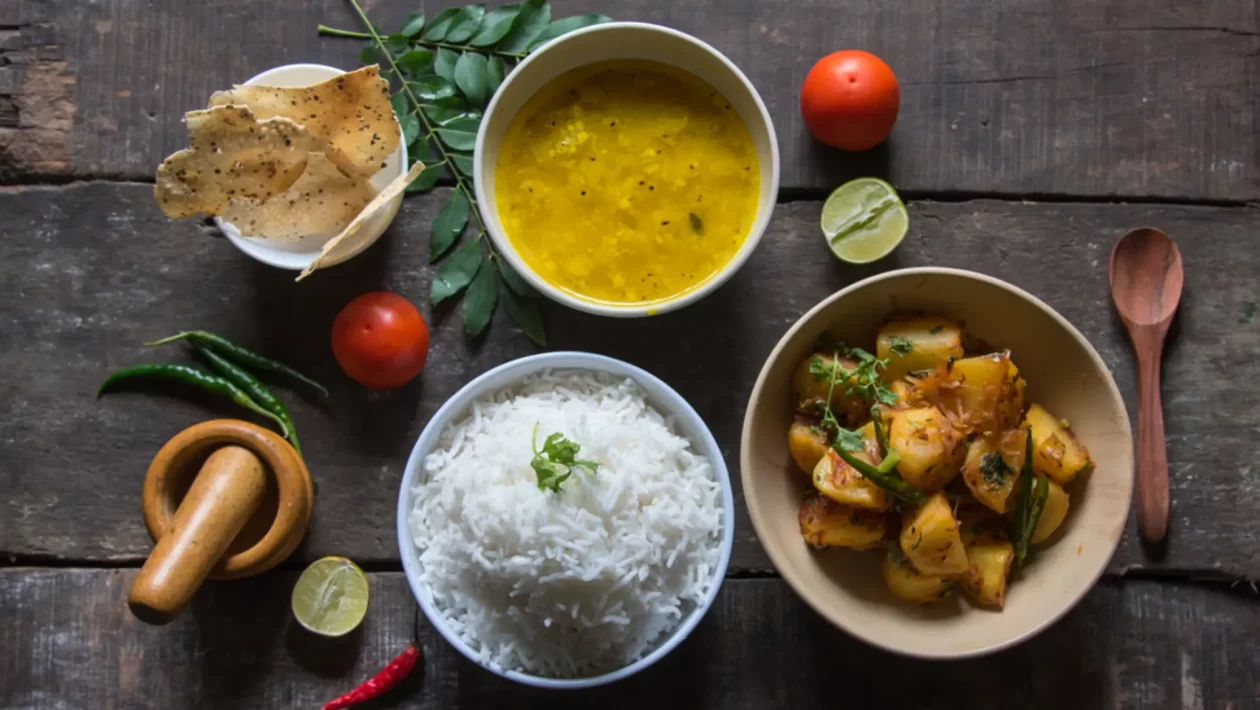To many, the concept of ayurvedic food combining seems fascinating, and should rightly be so. Ayurveda, the ancient holistic science of healing, advocates for the idea that some foods digest well together to support better gut functioning.
According to Ayurveda, good digestion is an essential element to vibrant health and that has to do a lot with the combination of foods that we consume. The wrong concoction of foods can make your digestive system come screeching to a halt, and that never ends well.
Eating the right food combination can dramatically improve the quality of digestion. Each food has its own combination of tastes and heating and cooling energies- with the subsequent effect on the digestive system and the whole body. Understandably, combining foods with different elements and compounds can easily overwhelm the body, resulting in indigestion, fatigue, bloating, gas, and build of toxins.
A Balanced Approach
Health starts with proper digestion. Often we have a habit of prioritizing what we eat over how and when we eat. And this can disturb the normal functioning of the gastrointestinal system and throw the overall balance of the doshas (body and mind compositions) off. Proper food combining can drastically improve gut health, digestion and contribute to holistic health if done the right way. So while what we choose to put on our plates matter, the way we decide to consume the feast assume a job in how well we digest it.
Fruits and Vegetables
Eating fruits fresh and on their own is the best way to go about it. They tend to break down easily and thus digest well. Ayurveda believes that more often than not fruits are best not to be consumed with other foods as it could lead to fermentation which can be taxing on the digestive fire. Vegetables don’t mix well with fruits or milk as well.
Nightshades like eggplant, potatoes and tomatoes are somewhat harder to digest and can disturb the doshas.
Dairy
Dairy is considered a repeated culprit in upsetting the gut. Dairy products like milk don’t combine well with other foods such as bananas, melons, fish, sour fruit and kitchari. As milk is a whole food in itself, merging it with other whole foods can wreck havoc in your gut. Milk is best enjoyed by itself, warm and simmered gently for 5-10 mins to make it more digestible. Adding spices like turmeric further enhances the digestibility, giving your gut and health the right kick it needs.
Ghee or clarified butter, the Ayurvedic wonder, is also a healing food and works with most foods- since it is essentially an oil rather than dairy solids. Ghee increases the digestive fire- agni, and improves absorption and assimilation. Now this definitely makes you feel less guilty for all the ghee immersed rotis you had/have, it is still better to consume it in moderation.
Beans and lentils
This should not sound far-fetched, but most beans and lentils that you consume almost everyday of your life, have post-digestive effects on your body. Depending on the type, beans and lentils can make us feel gassy due to their astringent and sweet tasting compounds. For their post-digestive effects, the colon, can be affected the most. This changes the urine, impact feces and sweat.
Give your beans and lentils the needed time to cook and add digestive spices like turmeric, ginger, or black pepper. Also be mindful of the combination you decide to pair beans with. Beans don’t harmonize well with fruit, cheese, milk, and meats.
Take Away
Food combining should not be as intimidating as it sounds. Ease your way into it and start with the changes you feel most comfortable with. Being aware of what you put in your body and how our dietary choices affect our health can be a powerful tool for nurturing your gut and overall health. Start slow, be mindful, and keep it simple!

